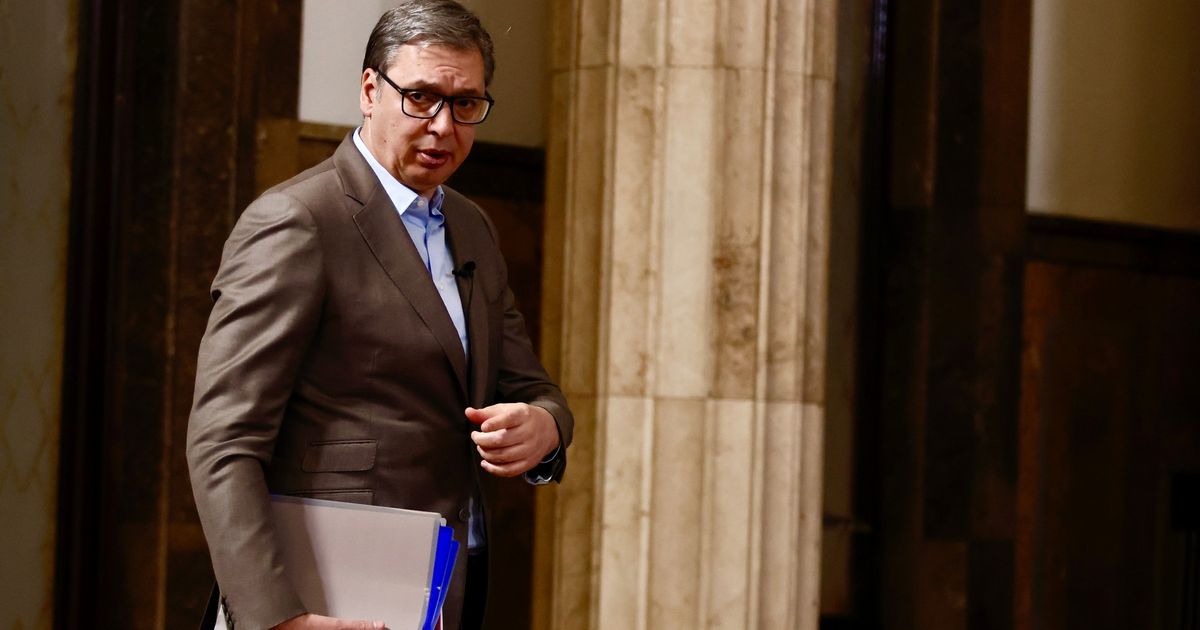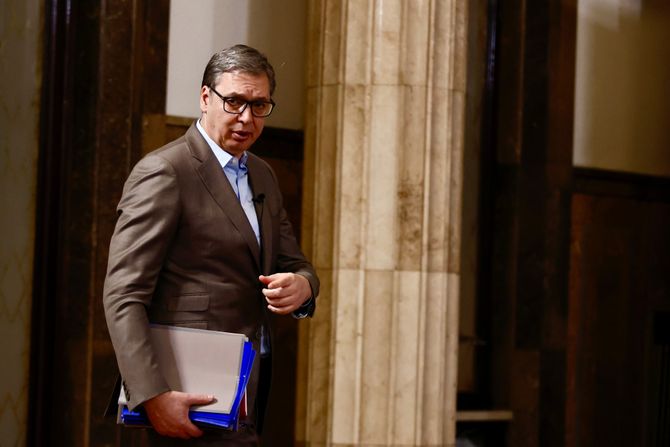The main topic covers the current political tensions in Serbia, including student protests and blockades demanding early parliamentary elections, as well as President Aleksandar Vučić’s responses to these events. Students postponed a hunger strike following the president’s request but remain in blockade. Vučić addresses the public and comments on the situation, including his attendance at a Russian military parade in Moscow. Additionally, reports cover the Russia-Ukraine conflict, highlighting Ukrainian attacks on Russian targets and Putin’s threats of retaliation. Different media outlets across the political spectrum emphasize different aspects: left-leaning media highlight student demands and criticize the government, centrist media report on Vučić’s statements and diplomatic activities, while right-leaning media support Vučić and condemn opposition criticism. The Russia-Ukraine conflict is presented as an important international context influencing the political situation in Serbia.
Political Perspectives:
Left: Left-leaning media emphasize the students’ demands for early parliamentary elections and criticize the government’s handling of the protests. They highlight the repression and violence against students and frame the protests as a fight for democracy and social justice. The Russia-Ukraine conflict is often portrayed with sympathy towards Ukraine and criticism of Russian aggression.
Center: Centrist media provide balanced coverage, reporting on both the students’ protests and the government’s responses, including Vučić’s public addresses and diplomatic engagements such as his visit to Moscow. They also cover the Russia-Ukraine conflict with a focus on factual updates and official statements from both sides, maintaining a neutral tone.
Right: Right-leaning media strongly support President Vučić, emphasizing his leadership, stability, and policies that have improved Serbia. They condemn opposition figures and student protesters as disruptive or manipulated by foreign interests. The Russia-Ukraine conflict coverage tends to align with pro-Russian narratives, highlighting Putin’s statements and framing Ukraine’s actions as terrorism.











